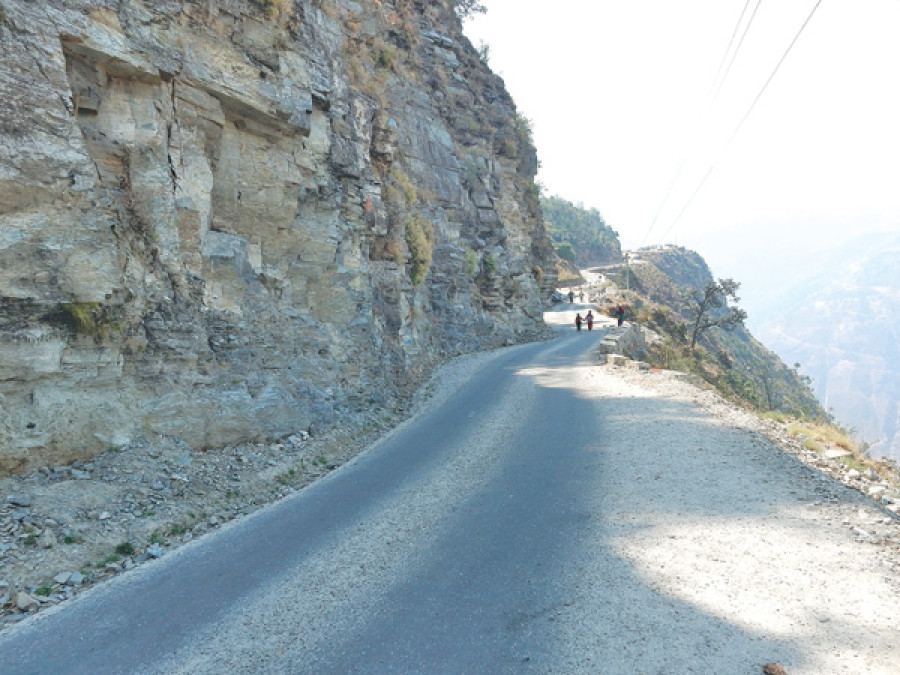Money
Road connectivity results in house building spree
Dhan Bahadur Batala from Malkot-6, Kalikot, built a seven-storey building, the tallest in Manma Bazaar, with an investment of Rs20 million after the region was connected with the Karnali road corridor. “I could have built a house in Kathmandu with the investment,” Batala said. “But I decided to invest in my homeland considering the development the road brings to the area.”
Tula Ram Pandey
Dhan Bahadur Batala from Malkot-6, Kalikot, built a seven-storey building, the tallest in Manma Bazaar, with an investment of Rs20 million after the region was connected with the Karnali road corridor. “I could have built a house in Kathmandu with the investment,” Batala said. “But I decided to invest in my homeland considering the development the road brings to the area.”
Former Finance Minister Ram Sharan Mahat, upon reaching Manma during an observation visit last September, was amazed to see such a towering structure in a rural village connected with, according to Batala.
Apart from running a hotel, Batala has rented two floors to Rastriya Banijya Bank and one to Nepal Climate Change Support Office.
Until three years ago, Manma had houses not taller than two storeys, but the development of a road connecting Manma to the Karnali Highway has lead to a house building spree in the region.
Kalikot, Jumla and Mugu did not have concrete houses until the raod was built, but now they have more than 600 such houses, said Chandra Bahadur Khadka, an engineer at the Building Division Office here. “Manma went through a facelift after the road was connected,” said Chakra Bahadur Shahi, an engineer at District Technical Office. “So much so that structures built without obtaining permits have narrowed open spaces.”
According to Shahi, the number of houses has doubled in a span of thee years and the district council only recently decided to implement building construction regulations.
Karnali highway has made public movement easier while opening up markets for local produces and possibilities of infrastructural development.
Social activist Mohan Subedi said people are no more compelled to knocking on the doors of political leaders and district administration offices to receive coupons for essentials.
Books which used to reach the district at end of the school session now have started to reach in time, said District Education Officer Babu Ram Karkheti.
Herbs and apple processing centres and distilleries have been established at the local-level.
In fact, the highway connecting Surkhet and Mugu has connected various districts in the region, easing livelihood of the residents and bringing drastic changes to the region.
The attention of the people has shifted from the maintenance of essentials goods’ stock to education, health, infrastructural development and science and technology. Schools have started teaching computer education, agriculture and science which they did not previously.
“Road connectivity has opened possibilities of economic and social transformation in the region” Min Bahadur Shahi a social activist, working in the region.




 18.12°C Kathmandu
18.12°C Kathmandu














